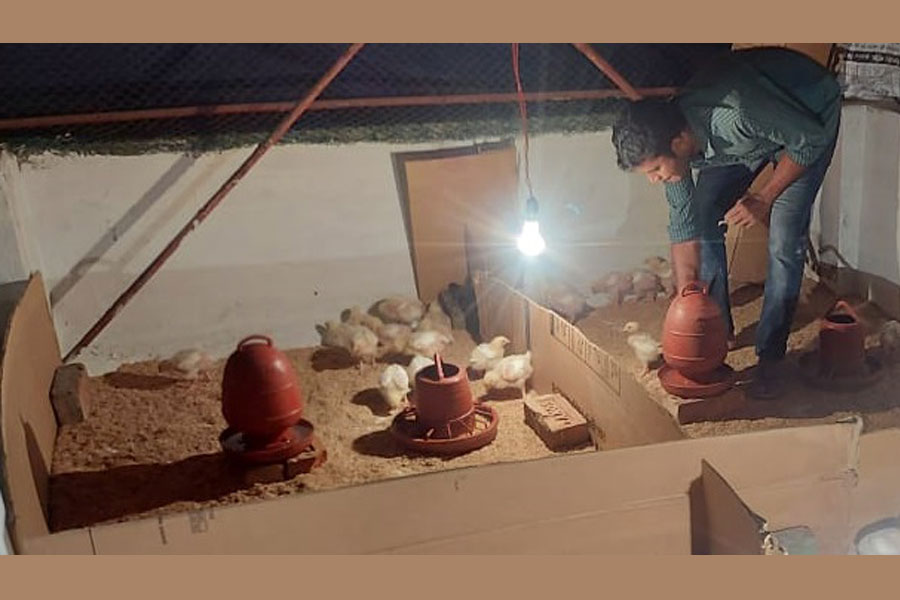Amla can reduce heat stress in broiler chicken: BAU research

Published :
Updated :

A group of researchers at Bangladesh Agricultural University (BAU) has claimed that they have reduced the effects of heat stress in broiler chickens using Amla.
Professor Dr Chayon Goswami of Biochemistry and Molecular Biology, Professor Dr Bapon Dey of the Poultry Science Department, and the lecturer of Biochemistry and Molecular Biology Kamrul Hasan Kazal have been conducting research, funded by a fellowship from the Ministry of Science and Technology, on the use of Amla in broilers.
The use of amla extract or powder in a natural way will reduce the heat stress of the broilers in the intense heat wave and the amount of food intake of the broilers will also increase at high temperatures, the researchers said.
Professor Dr Chayon Goswami said various methods are commonly used to reduce heat stress in broilers. For instance, modern farms rely on full air-conditioning or ventilation systems and the use of synthetic drugs.
However, these methods are costly and not profitable for marginal farmers.
“Therefore, our research aims to find natural and sustainable solutions to mitigate the effects of heat stress, particularly for marginal farmers. Our study revealed the effectiveness of amla in this regard," he said.
About the various benefits of amla on broilers, the researchers said amla powder works as an appetite enhancer for broilers. Amla extract or powder mixed with broiler feed does not cause any problem in chicken feed intake because amla powder does not change the taste of food.
Another researcher Dr Bapon described Amla as an alternative to antibiotics as it is rich in vitamin C and antioxidants.
Although antibiotics have various side effects, amla extract or powder is completely free of side effects. Amalaki phytochemicals help sustain broiler production under severe heat stress, he said.
Dr Bapon said the use of amla increases the amount of beneficial bacteria in the digestive tract of chickens and decreases the amount of harmful bacteria.
Professor Dr Chayon Goswami explained the method of reducing the effect of heat stress on the broiler at high temperatures by using amla.
Broilers are more susceptible to heat stress due to their fast metabolic rate and absence of sweat glands. At high temperatures, the body of chickens produces a large amount of free radicals and reactive oxygen species, which reduce the production of proteins, lipids, and energy in the body, he explained.
However, the antioxidants present in amla accelerate the production of these free radicals and reactive oxygen species.
About the method and use of amla extract or powder, Professor Chayon said, first of all, amla was collected. After that, the collected amla was cleaned, the seeds were removed and the remaining part was dried in a light shade to make powder. About 150 to 190 grammes of powder can be made from one kg of amla. Two doses were used in the study viz: 0.5 per cent and 1 per cent. So 5 grammes or 10 grammes of powder can be mixed with one kilogramme of food.
Although there are many other sources of vitamin C, amla is very high in vitamin C. 500 to 700 mg of vitamin C is available in every 100 grammes of amla. Hence, the benefits of amla on broilers are greater than those from other sources, he mentioned.
However, there is a need for more research on the use of amla in broilers, Professor Chayon said.


 For all latest news, follow The Financial Express Google News channel.
For all latest news, follow The Financial Express Google News channel.